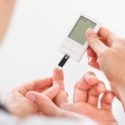When you apply for life insurance, there are several different factors that the insurance company is going to look at dozens of different factors. One of the biggest aspects that they are going to review is your health. The better your health, the better rates you’ll get for your insurance coverage.
Having type 1 diabetes used to mean an automatic decline from life insurance underwriters. If you answered “yes” to the question are you an insulin-dependent diabetic or do you have type 1 diabetes, then underwriters wouldn’t give your application a second thought.
Fortunately, things have changed due to a better understanding of this form of diabetes, and insurance companies are slowly changing their underwriting standards to include the unique health situation of a type 1 diabetic.
So there is no question on whether you can get approved for a life insurance policy because there are companies offering policies to type 1 diabetics at reasonable rates today. Your health and blood sugar control is the deciding factor though.
When Were You Diagnosed?
Previous underwriting standards meant if you answered “yes” to the question, “do you have type 1 diabetes”, then you were automatically declined.
There are still plenty of companies that operate with this standard – they do not insure type 1 diabetics, or they don’t insure you if you were diagnosed before a certain age (anywhere from 40 to 50 depending on the company) and some that only focus on excluding juvenile diabetics. Fortunately there are also carriers that have some flexibility, depending on how well you control your glucose levels and what your overall health is.
What Is Your A1C?
Your blood sugar control is going to be the biggest factor that will determine your health rating class, which will determine whether you get approved for a life insurance policy with diabetes and what the rate will be. It is also the biggest factor in what your rate will be. Insurance underwriters want to know whether your glucose levels are being controlled or not and your A1C is the magic number when it comes to evaluating your control.
Statistics clearly show that high blood sugars over time have a myriad of health consequences. Poor blood sugar control has serious long-term effects like heart disease, stroke, kidney failure, vision problems, and neuropathy, just to name a few. These are serious health issues that insurance underwriters are supposed to filter out in order to lower the risk to the company.
The A1C is the test that all medically underwritten life insurance policies for diabetics require in order to evaluate whether your diabetes is considered controlled or uncontrolled. Most insurance companies look for an A1C of 7.0 and less to consider an approval or not. In all actuality, the lower the A1C the better.
What Is Your Insulin Intake?
The amount of insulin you have to take per day is another important factor that insurance companies will inquire about. Not only does this number impact the chances of getting approved, but it also makes a difference in the monthly premium. Although there is not a chart to easily determine the impact the number of units will have since it is based on the varying factor of height and weight, there is a way to estimate the impact. Ideal pricing is normally granted to people taking 25 units or less per day. As the units increase, so does the price. Diabetics taking up to 50 units are typically approved.
Your Overall Health Matters
A type 1 diabetic definitely has a more challenging time when it comes to obtaining life insurance, but you greatly increase your changes with excellent blood sugar control as well as good overall health.
Insurance underwriters consider a number of factors when evaluating you for a life insurance policy. They are going to scrutinize many aspects of your blood sugars and diabetes hisory, but they will also look at your overall picture of health. Other things they look closely at are:
- Do you have high blood pressure or poor cholesterol levels?
- Are you overweight?
- Do you smoke?
- Are you suffering with complications from high blood sugars?
If you answered yes to any of these questions, then your ability to obtain a life insurance policy will be much more difficult. This is why I recommend preparing for a life insurance application in advance through proper eating, exercise, and efficient insulin therapy to ensure that you have a chance at getting an affordable policy.
What If Your A1C Is High and You Have Diabetic Complications?
I’ve said that the best scenario for a type 1 diabetic shopping for life insurance coverage is when they are in good health with little or no other health issues and with a low A1C – that is really the ultimate combination for someone with type 1 diabetes who is applying for life insurance.
So what if you don’t fall into that category? What if your A1C is 9 or 10? What about someone who does have a history of cardiovascular problems or a stroke?
If you have a high A1C or serious health issues, then your chances of getting approved for a traditional term or whole life insurance policy is very low. But there are some other options you could consider, though not the most attractive.
Guaranteed issue life insurance is something you could look into if you are really set on having some form of life insurance coverage in place. This is pretty much what it sounds like – it has a guaranteed approval for most people.
This policy has several caveats – you can’t get much coverage, it is pretty expensive, and there is a two year waiting period before the death benefit kicks in, so I don’t really recommend it if you can qualify for another life insurance plan.
These plans are an excellent option for anyone that has been declined for life insurance coverage in the past. Everyone should be able to get the life insurance protection that your family will need, and your health shouldn’t prevent you from getting it.
Another option is to get a policy through a group, such as life insurance through your job or school. Group policies don’t require a medical exam or any disclosure of health issues. Many type 1 diabetics obtain life insurance protection through this route.
You could also take some time, say 3 to 6 months, to really focus on your health and your blood sugar control and get your A1C down before you consider life insurance.
This is a sensible choice, though it doesn’t satisfy that immediate gratification that most people want when they want to get a life insurance policy.
Getting Affordable Life Insurance Coverage As A Type 1 Diabetic
As an applicant with type 1 diabetes, you can expect to pay much higher premiums, but that doesn’t mean that you have to pay for an expensive insurance plan. Regardless of your diabetes diagnosis, there are several ways that you can trim down your insurance rates. Making a few simple changes could help you save hundreds of dollars on your life insurance protection.
The first thing that you should do is cut out any tobacco that currently use. If you’re listed as a smoker or a chewing tobacco user on your application, coupled with your diabetes, then you’ll be declined for life insurance with every company. If you want to save money on your plan, you’ll need to kick the bad habits once and for all.
Another great way to save money on your insurance policy is to shed any extra pounds that you’ve been carrying. Before the insurance company approves your application, they are going to require that you take a medical exam. The results of the exam are going to play a major role in how much you pay for your plan. If you want to save money, you’ll need to improve your overall health, and the best way to do that is by losing weight. Starting a diet and getting regular exercise is a great way to improve your overall health and save money on your policy.
The best way to ensure that you’re getting the lowest premiums is by working with an independent insurance broker. Unlike a traditional insurance agent, independent brokers work with dozens of highly rated companies across the nation. Our independent agents know which companies are going to give you the best rates for any applicant with type 1 diabetes.
Get a Free Rate Quote Today to See What Your Options Are
Whether you have a low A1C and no other health concerns or if you have poor blood sugar control, or if you fall somewhere in between – the starting point on your journey to obtaining life insurance is to do a rate comparison from several different companies. You can start here by filling out the form on this page to get your first set of quotes. You can work with an experienced independent insurance agent, who is not tied to any one company.
We have helped hundred of type 1 and type 2 diabetics get affordable life insurance policies. Having that experience allows us to match you with the best plan for your needs. If you ever have any question please contact us. We are here to help. We specialize in all types of life insurance for diabetics.




